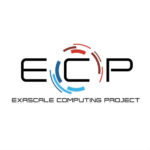New York, NY, November 17, 2022 – ACM, the Association for Computing Machinery, named a 16-member team drawn from French, Japanese, and US institutions as recipient of the 2022 ACM Gordon Bell Prize for their project, “Pushing the Frontier in the Design of Laser-Based Electron Accelerators With Groundbreaking Mesh-Refined Particle-In-Cell Simulations on Exascale-Class Supercomputers.” The members of […]
At SC22: ACM Gordon Bell Prize Awarded for Particle-In-Cell Simulations on Frontier, Fugaku, Summit and Perlmutter Supercomputers
@HPCpodcast at SC22: An Analysis of the New TOP500 List
This special SC22 edition looks at the new TOP500 list of the world’s most powerful supercomputers, released today. It marks the 60th edition of the list, repesenting 30 years of systematic data on the highest performing computer architecture and configurations. While this TOP500 is not full of surprises, there’s a new no. 1 at the top of the GREEN500, and across all the categories of the list there’s always important historical data and valuable tea leaves pointing to future trends….
TOP500: Frontier Maintains Big Lead, Europe at Nos. 3 and 4, China Quiet
The new TOP500 list of the world’s most powerful supercomputers, released today at the SC22 conference in Dallas, while short on surprises underlines several significant HPC trends. First the headline: the HPE-built, AMD-powered Frontier system, which was crowned the world’s first exascale-class system when the previous TOP500 list was released last spring, remains at the top of the list, delivering nearly three times the power of its nearest rival on the list. Frontier remains at 1.102 exaFLOPS….
@HPCpodcast: UC Berkeley’s and LBNL’s Kathy Yelick on Exascale, the Future of Supercomputing, Partitioned Global Address Space and Diversity in HPC
Today, on the eve of Exascale Day, the @HPCpodcast is delighted to have Kathy Yelick as our special guest to observe Oct. 18 (1018 – a billion billion calculations per second). Dr. Yelick is the Robert S. Pepper Distinguished Professor of Electrical Engineering and Computer Sciences and the Vice Chancellor for Research at UC Berkeley, and Senior Faculty Scientist at Lawrence Berkeley National Laboratory.
Aurora on Schedule? Intel Says it’s Shipping Ponte Vecchio-Sapphire Rapids Blades to Argonne
The rumors had begun to cirulate – October is near, that starts the fourth quarter, 2023 isn’t far behind, all of which means Intel is coming up against a hard deadline to deliver its delayed Aurora exascale-class supercomputer to Argonne National Laboratory by the end of the year. Is another delay in the offing?
Then, yesterday, Intel tweeted this out: “Server blades with Intel 4th Gen Xeon and Ponte Vecchio, which uses Intel’s most advanced IP and packaging technology, are now shipping to Argonne National Labs to power the Aurora supercomputer!” And the tweet was backed by comments to the same effect from CEO Pat Gelsinger
@HPCpodcast: On the Scene at ISC 2022 – HPE, AMD Make TOP500 News; Intel Makes News of Its Own
ISC 2022 in Hamburg was notable for a number of reasons – it was not only the first in-person ISC since 2019, it also provided a plethora of major news. This included big changes at the top of the TOP500 list of the world’s most powerful supercomputers, and the Frontier HPC system at Oak Ridge National Lab surpassing of the exascale milestone. While AMD, whose chips power Frontier, and HPE, which built Frontier, were the conference’s spotlight vendors, Intel also made some impressive product announcements, as analyzed in this discussion by Shahin Khan. You can find our podcasts at insideHPC’s @HPCpodcast page, on Twitter and at the OrionX.net blog. Here’s the RSS feed.
Report: China ‘Seizing’ HPC High Ground, Plans 10 Exascale Systems by 2025
Exascale supercomputing – which systems vendors can deliver it, which supercomputing centers can access it, which countries have it – will no doubt be a hot topic at the ISC 2022 conference in Germany later this month and in government policy circles concerned with HPC’s geopolitical impact. The discussion is only heating up with a […]
Exascale Computing Project BoF Days May 10-12
May 9, 2022 — The Exascale Computing Project (ECP) 2022 Community Birds-of-a-Feather (BOF) Days will take place Tuesday, May 10–Thursday, May 12, with six to eight sessions per day conducted via Zoom. Registration and the agenda can be found here. The 2022 Community BOF Days is designed to provide an opportunity for the high-performance computing […]
ExaIO: Access and Manage Storage of Data Efficiently and at Scale on Exascale Systems
As the word exascale implies, the forthcoming generation exascale supercomputer systems will deliver 1018 flop/s of scalable computing capability. All that computing capability will be for naught if the storage hardware and I/O software stack cannot meet the storage needs of applications running at scale—leaving applications either to drown in data when attempting to write to storage or starve while waiting to read data from storage. Suren Byna, PI of the ExaIO project in the Exascale Computing Project (ECP) and computer staff scientist at Lawrence Berkeley National Laboratory, highlights the need for preparation to address the I/O needs of exascale supercomputers by noting that storage is typically the last subsystem available for testing on these systems.
Let’s Talk Exascale: Container Technologies for Exascale Computing
In this episode of the Exascale Computing Project’s (ECP) Let’s Talk Exascale podcast series, Andrew Younge of Sandia National Laboratories discusses container technology and how it fits into the wider scheme of exascale and high-performance computing (HPC). Container technology has revolutionized software development by providing greater software flexibility, reliability, ease of deployment and portability. But […]









